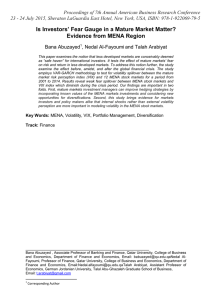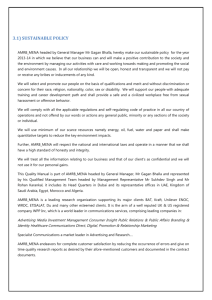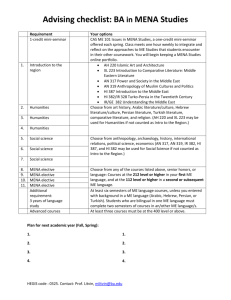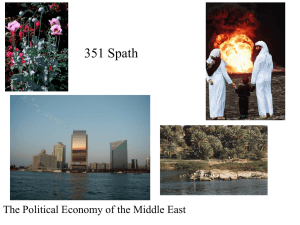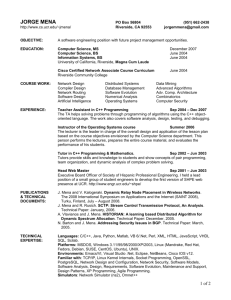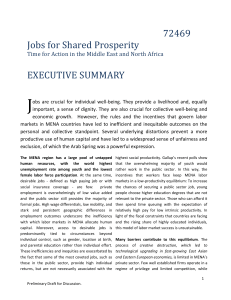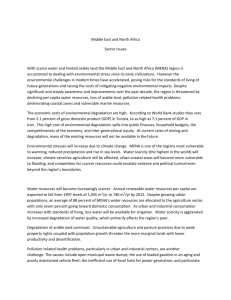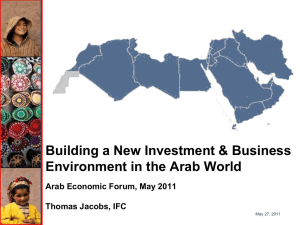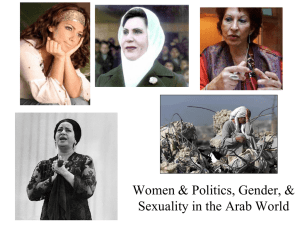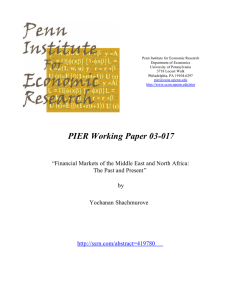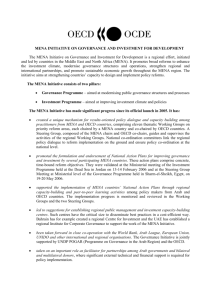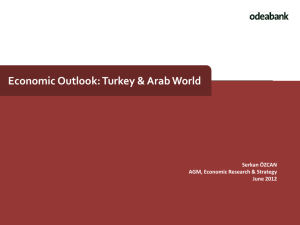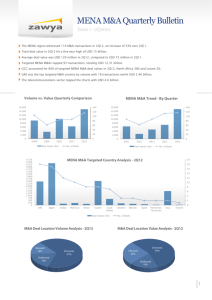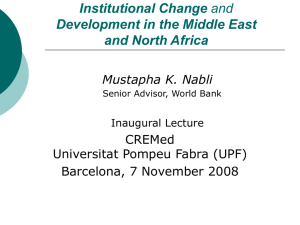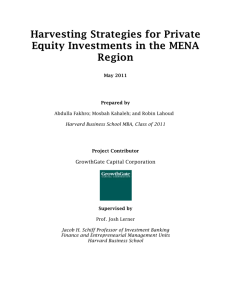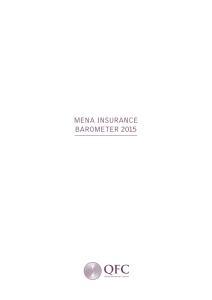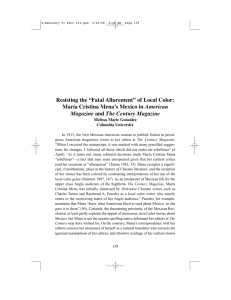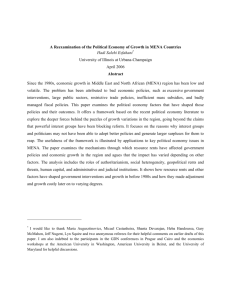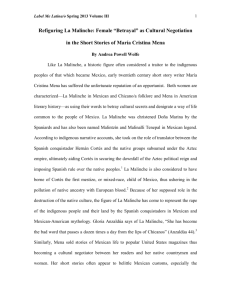English
advertisement
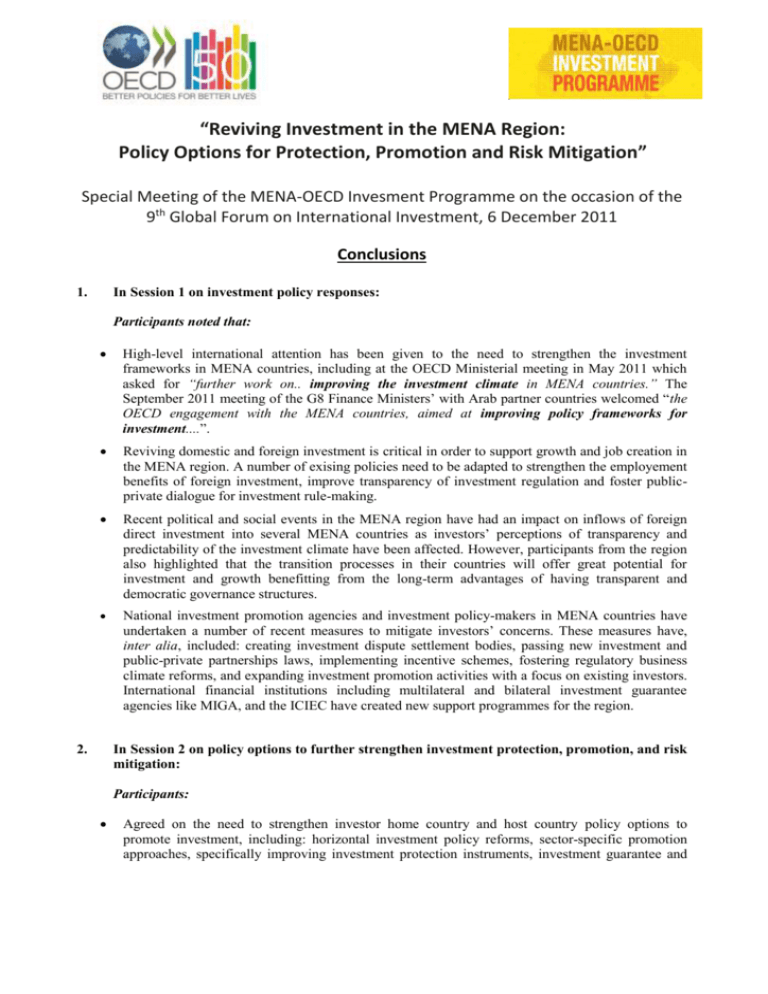
“Reviving Investment in the MENA Region: Policy Options for Protection, Promotion and Risk Mitigation” Special Meeting of the MENA-OECD Invesment Programme on the occasion of the 9th Global Forum on International Investment, 6 December 2011 Conclusions 1. In Session 1 on investment policy responses: Participants noted that: High-level international attention has been given to the need to strengthen the investment frameworks in MENA countries, including at the OECD Ministerial meeting in May 2011 which asked for “further work on.. improving the investment climate in MENA countries.” The September 2011 meeting of the G8 Finance Ministers’ with Arab partner countries welcomed “the OECD engagement with the MENA countries, aimed at improving policy frameworks for investment....”. Reviving domestic and foreign investment is critical in order to support growth and job creation in the MENA region. A number of exising policies need to be adapted to strengthen the employement benefits of foreign investment, improve transparency of investment regulation and foster publicprivate dialogue for investment rule-making. Recent political and social events in the MENA region have had an impact on inflows of foreign direct investment into several MENA countries as investors’ perceptions of transparency and predictability of the investment climate have been affected. However, participants from the region also highlighted that the transition processes in their countries will offer great potential for investment and growth benefitting from the long-term advantages of having transparent and democratic governance structures. National investment promotion agencies and investment policy-makers in MENA countries have undertaken a number of recent measures to mitigate investors’ concerns. These measures have, inter alia, included: creating investment dispute settlement bodies, passing new investment and public-private partnerships laws, implementing incentive schemes, fostering regulatory business climate reforms, and expanding investment promotion activities with a focus on existing investors. International financial institutions including multilateral and bilateral investment guarantee agencies like MIGA, and the ICIEC have created new support programmes for the region. 2. In Session 2 on policy options to further strengthen investment protection, promotion, and risk mitigation: Participants: Agreed on the need to strengthen investor home country and host country policy options to promote investment, including: horizontal investment policy reforms, sector-specific promotion approaches, specifically improving investment protection instruments, investment guarantee and insurance schemes, and targeted measures to be applied to larger infrastructure investment projects. Agreed that regional economic integration, trade and investment frameworks, in particular the 1980 Arab League investment instruments, need to be renewed, strengthened and complemented with more harmonised national investment policies. Welcomed new and innovative investment policy and financing instruments as proposed by the working group on Investment Security in the Mediterranean Region (ISMED). The objective of the ISMED working group is to develop proposals for enhancing the interaction and efficiency of legal security and guarantee instruments currently available for investments in long-term larger-scale infrastructure projects in the Southern and Eastern Mediterranean region. Noted the benefits of increased co-operation and synergies amongst international organisations and international finance institutions as well as other regional investment initiatives in defining and implementing policies to promote and protect investment. The G8 Deauville Partnership coordination platform should be used to this respect. Noted that multilateral financial institutions have a role to play to insure political risk and to promote employment programmes in co-operation with international organisations. 3. Looking ahead, participants agreed: That further host country measures need to be taken to strengthen the general business and investment climate, including on issues such as land ownership and administrative simplifications which are of key importance in signalling transparency and predictability to investors. That host countries should further work to strengthen investment promotion instruments in order to retain and attract investors, and need to use all available investment policy and promotion tools to reassure investors by improving investment security and protection and working to restore investor trust. That home countries should use all investment protection and promotion tools to motivate investors to invest in the MENA region, including through political and regulatory risk guarantee and insurance schemes. That investors should make full use of existing public and private risk guarantee and insurance schemes in order to mitigate investment risks. They further agreed: To ask the MENA-OECD Investment Programme to carry out an inventory collecting investment policy measures since early 2011 in host governments and key investment promotion instruments in investor home countries which have significant investments in MENA. This inventory should be reported back to the Programme’s Working Group on Investment Policy and Promotion. To leverage the network of the Working Group on Investment Policy and Promotion in order to address investment policy issues identified by investors and to communicate them to the appropriate entities in home and host countries, international organisations and investment agencies.
